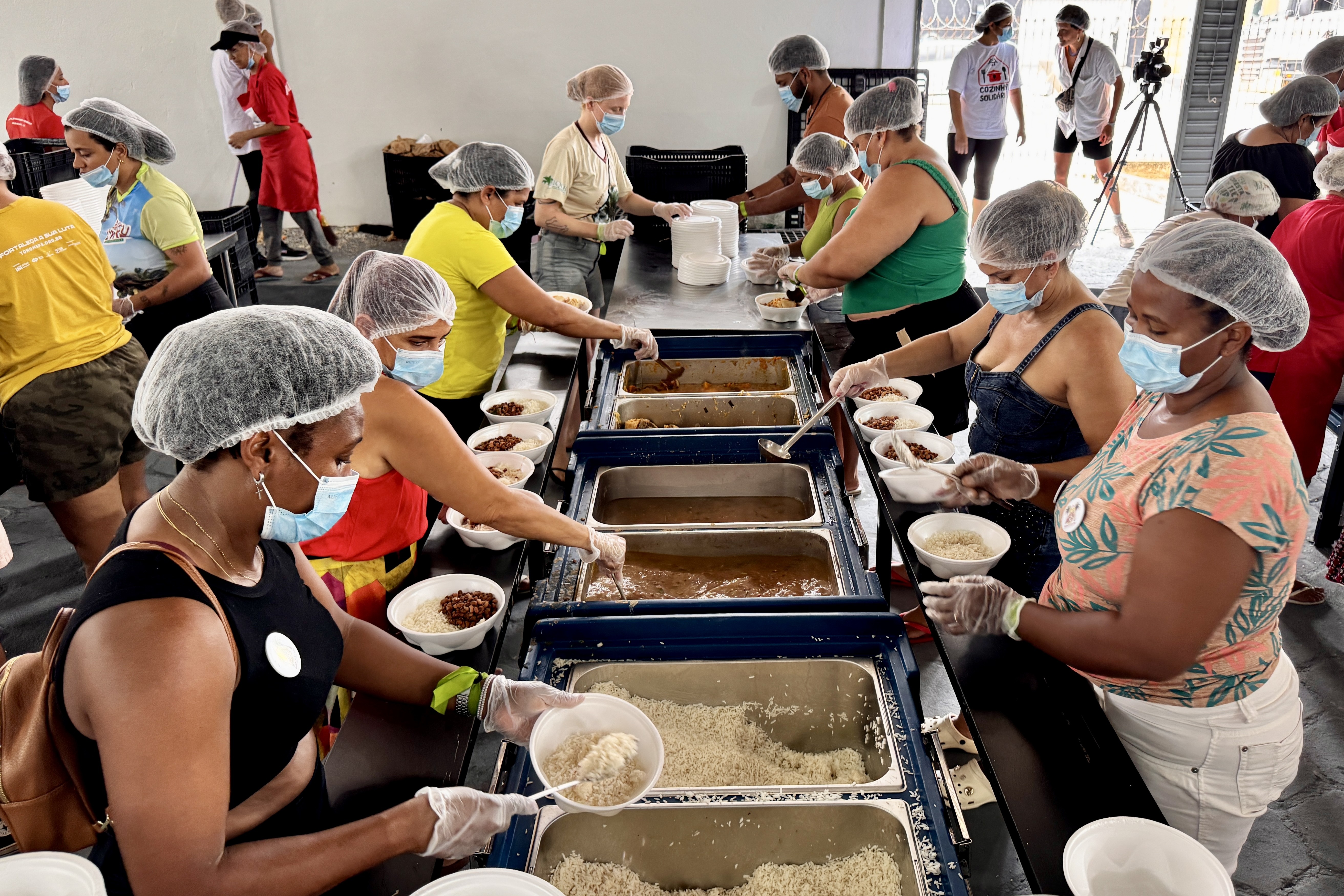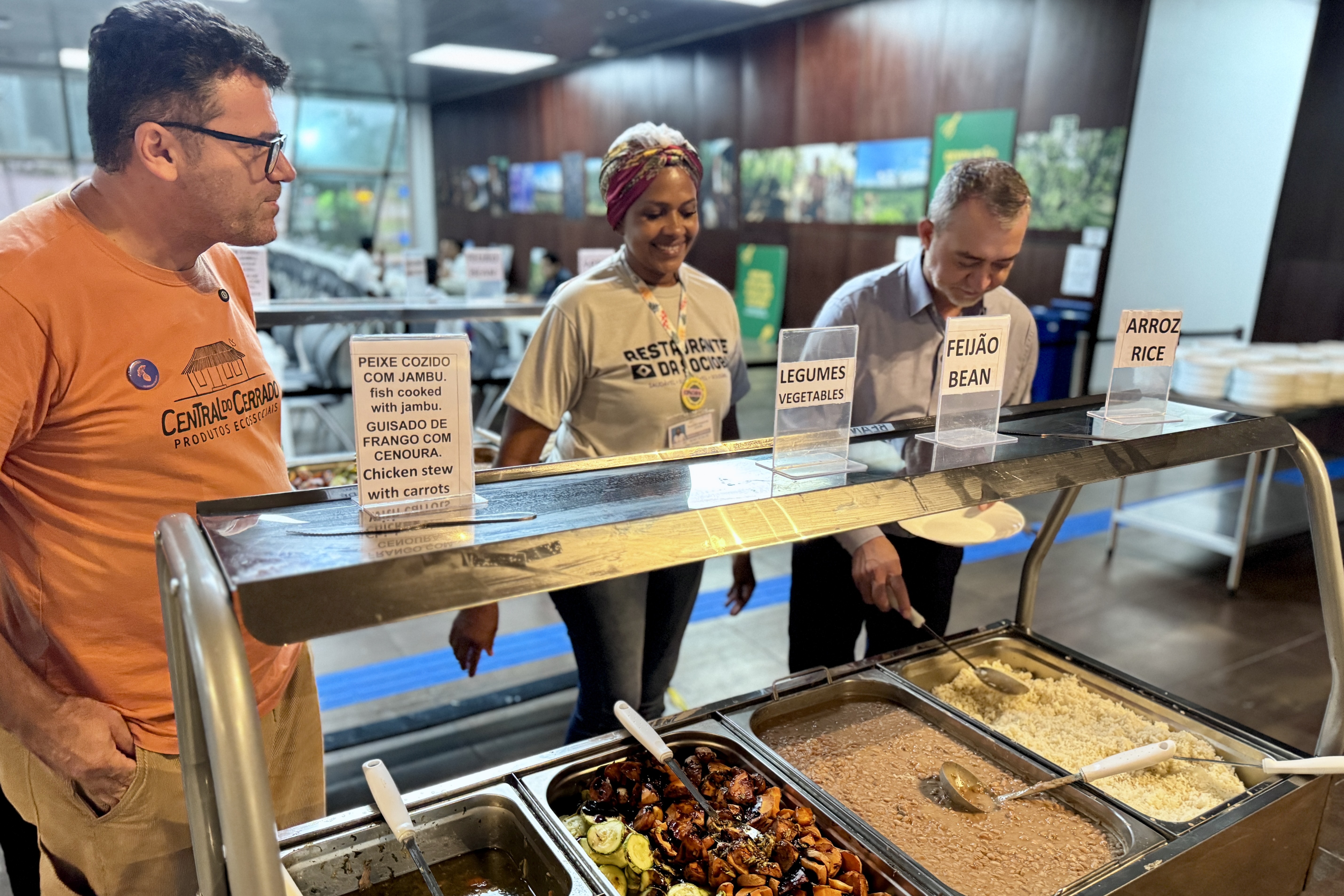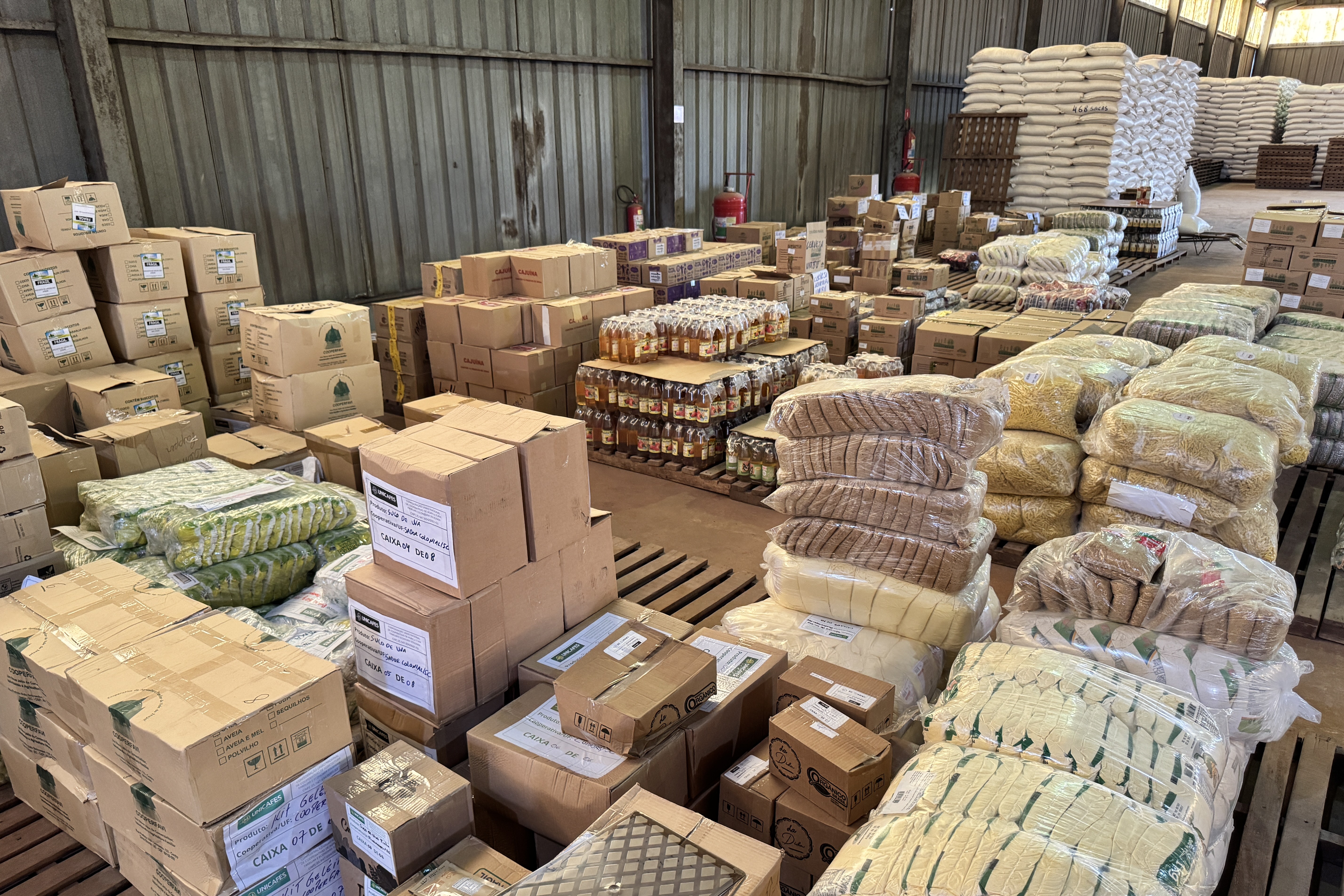At COP30, Family Farming Emerges as a Cornerstone of Global Food Security, and a Living Bridge Between Climate, Land, and People
An investment of R$ 1.3 million secured the purchase of 146 tons of food from family farming through Brazil’s Food Acquisition Program (PAA). The Ananindeua Storage Unit received two containers and is stocking the products without charging any fees

At COP30 in Belém, while global leaders deliberate on the future of the planet, another conference — silent, daily, and essential — unfolds at the heart of the event: the effort that ensures fresh, affordable, and healthy food for thousands of people circulating through Parque da Cidade (The City Park). It is here that Brazil’s National Supply Company (Conab) plays a decisive role, guaranteeing the nourishment of delegations, workers, volunteers, and grassroots movements participating in the People’s Summit and the Indigenous COP. For the first time in the history of climate conferences, family farming has been included in the United Nations budget as an official food supplier.
Operations for COP30 mobilized farmers from all regions of Brazil, with particular emphasis on producers from the Amazon. Conab invested R$ 1.3 million in the purchase of 146 tons of food through the Food Acquisition Program (PAA), becoming responsible for 100% of the meals at the People’s Summit and coordinating the participation of cooperatives to ensure at least 30% of the food served in official COP areas — the Blue Zone and the Green Zone.
At the core of the logistical operation is the Ananindeua Storage Unit, set up specifically to receive, refrigerate, and distribute products without charging fees. With a capacity of up to 500 tons, the facility has become central to the food supply at COP30, handling items ranging from freshly harvested vegetables to frozen fish and poultry. Two containers installed by Conab have further expanded the capacity to accommodate products requiring refrigeration.

At the kitchens of the People’s Summit, 21,000 meals were served daily. Volunteers, such as Eliane de Araújo from Rio Grande do Sul, experience firsthand the impact of public policy: “Everything I request arrives in my hands. It is wonderful to see abundant and healthy food provided to so many people at this international event,” she shared.
In the Blue Zone, the SocioBio restaurant — managed by the Central Cerrado Cooperative and partners — prepared approximately 100,000 meals over 30 days. The menu brought together ingredients from Brazil’s diverse biomes and generated more than R$ 1 million in income for cooperatives. “This is food aligned with the purposes of a global gathering such as this,” stated Executive Secretary Luiz Carrazza.
For farmers like Ana Cláudia Souza, of the Agricultural Cooperative of Producers of Belém do Pará (Copabel), seeing their products at COP30 represents the fulfillment of a dream nurtured since childhood. “We never imagined our food would reach so far. It brings joy to know that our work is part of something so significant,” she said.

On November 20, Conab donated 18 tons of surplus food by the People’s Summit to solidarity kitchens in Belém and the metropolitan region, thereby reinforcing its commitment to food security.
Conab President Edegar Pretto emphasized that the mandate received from the federal government reflects Brazil’s broader message to the international community: “We are ensuring the supply of food to people worldwide, as we already do domestically, including contributing to Brazil’s removal from the Hunger Map.”
At COP30, Brazil demonstrates that addressing the climate crisis also requires recognition of those who produce food — individuals whose livelihoods depend on the climate, the land, and public policies, and who continue to nourish both the nation and the world.
Translation: Michel Emmanuel Félix François (POET/UFC)
Proofreading: Tadeu Azevedo (POET/UFC)
